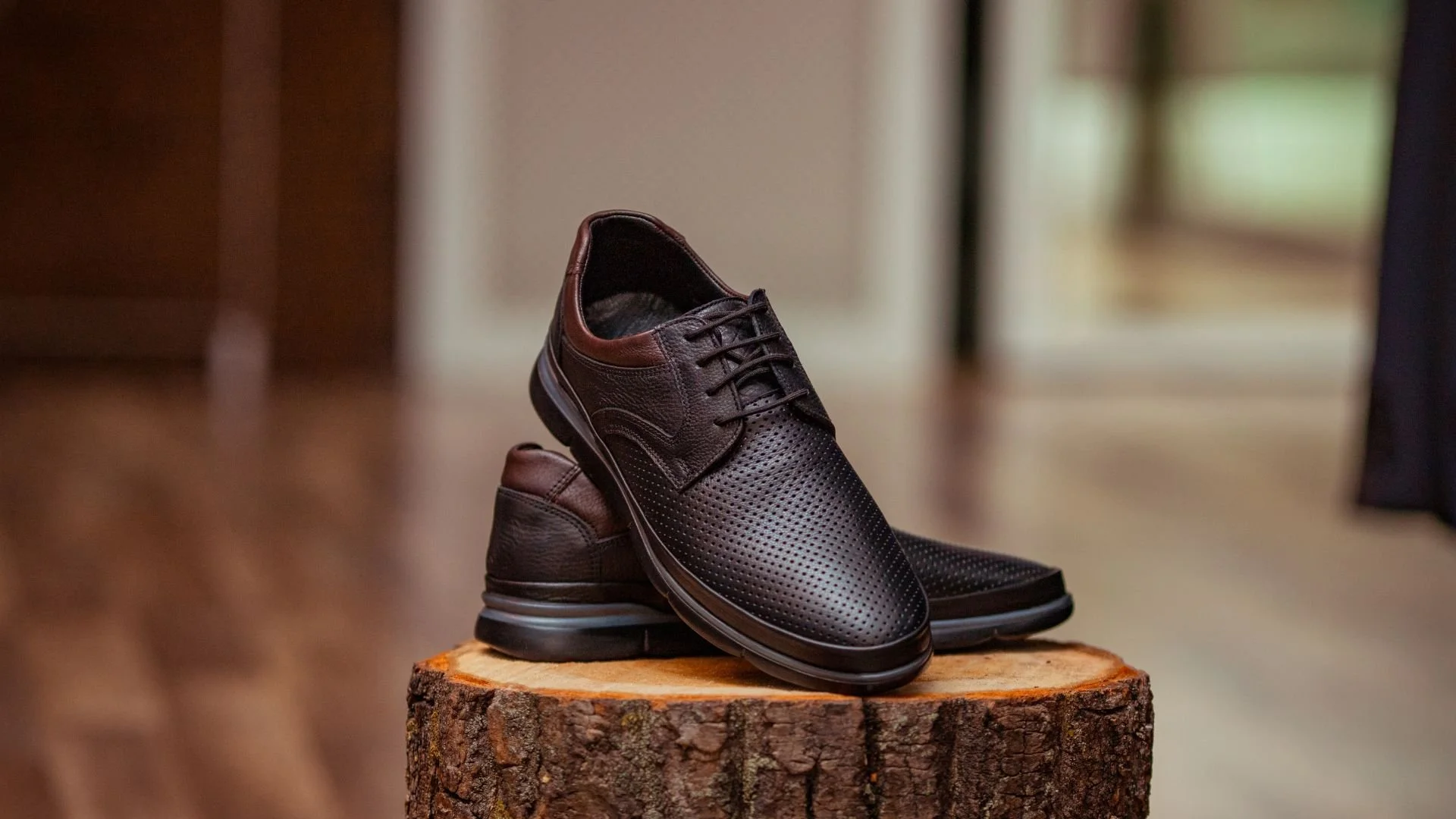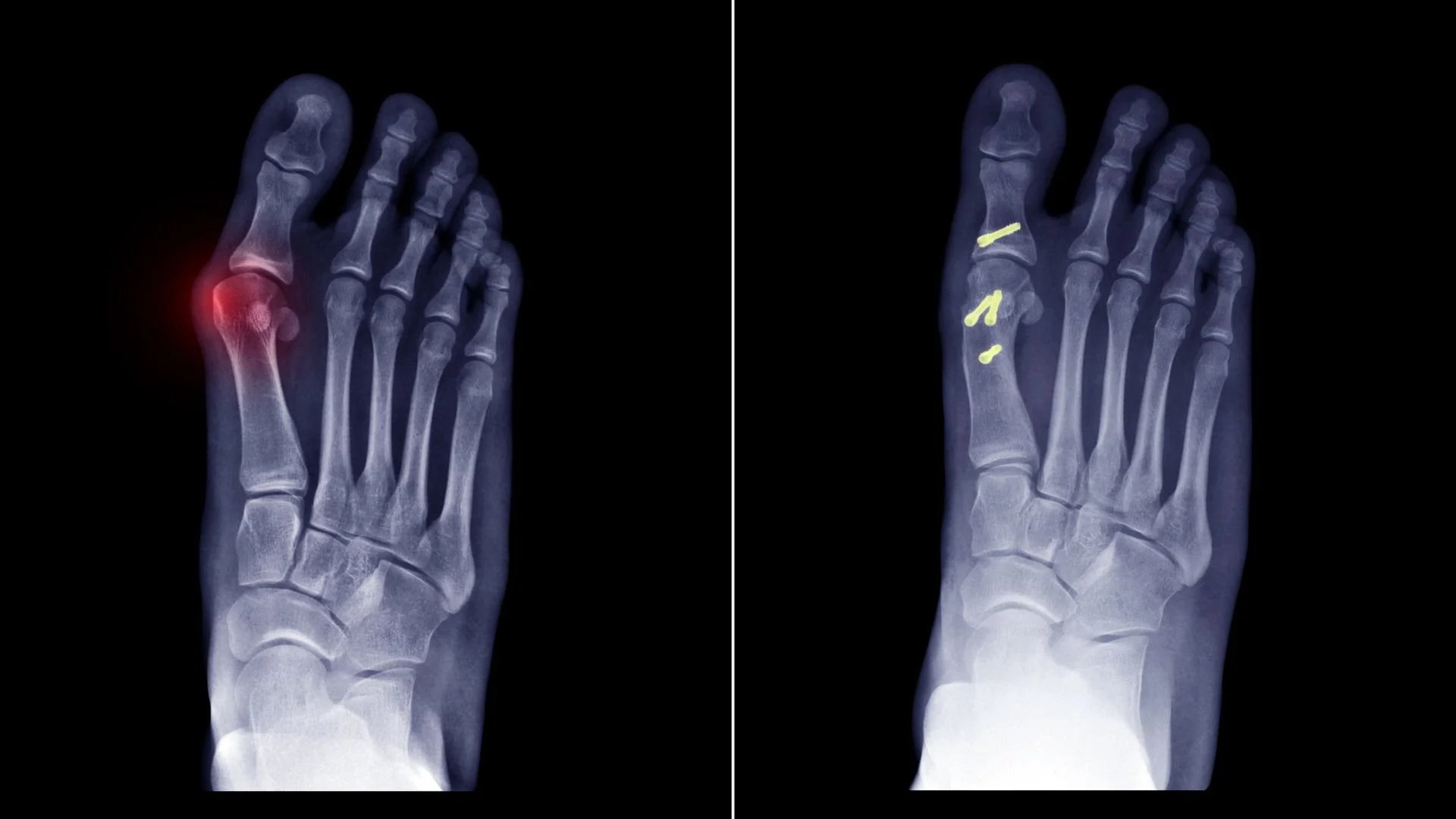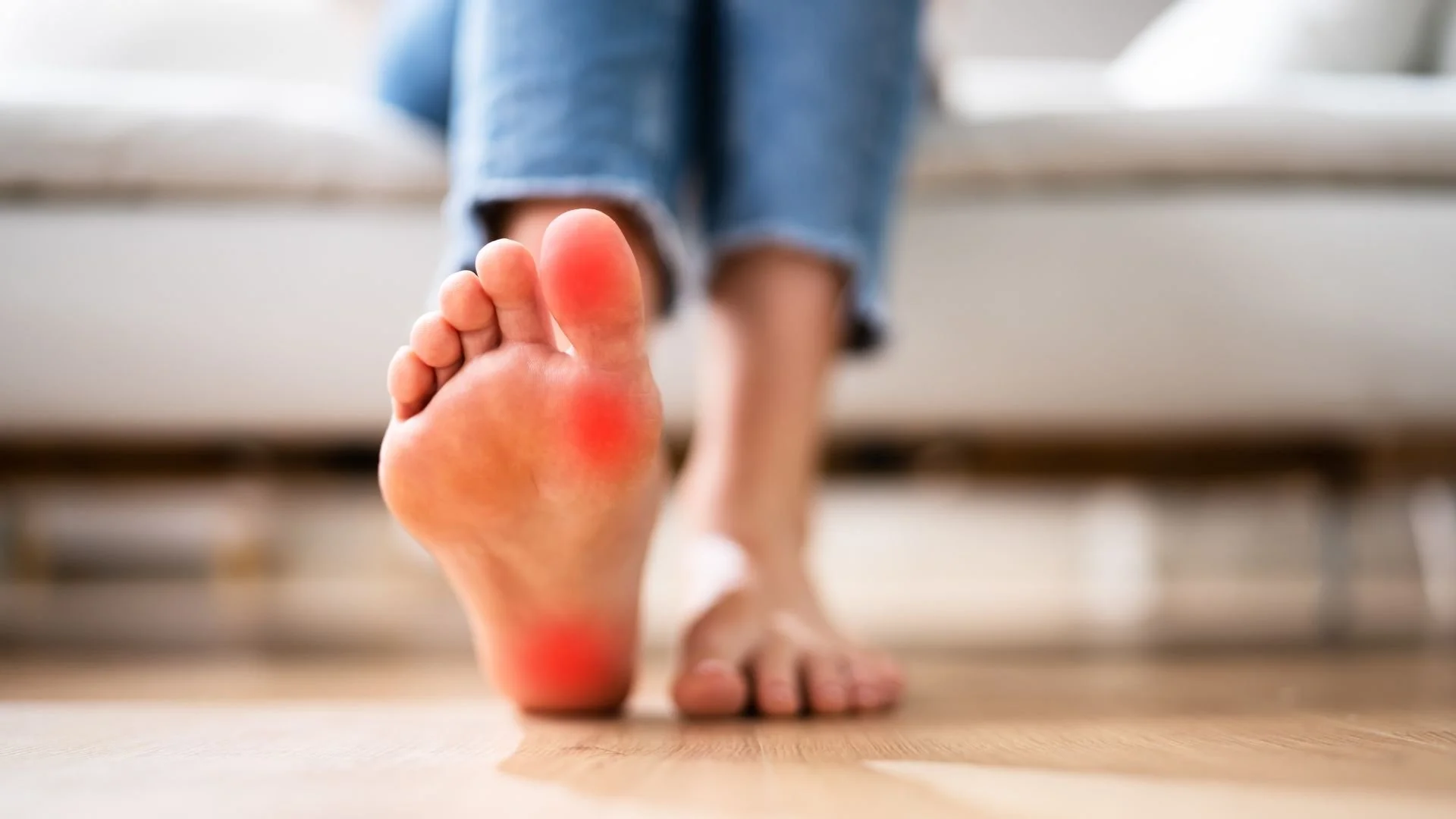
Bunion Treatment in Gastonia, NC
Find Comfort and Relief at Carolina Foot and Ankle Specialists
Does a painful bump at the base of your big toe make wearing shoes uncomfortable or even agonizing? This common deformity, known as a bunion, can significantly impact your mobility and quality of life.
At Carolina Foot and Ankle Specialists in Gastonia, NC, we understand the frustration and pain bunions can cause. Our expert podiatrists are dedicated to providing accurate diagnosis and highly personalized treatment plans, aiming to reduce your discomfort and correct the underlying issue.
We offer a blend of conservative approaches and advanced surgical options, all delivered with compassionate care right here in the Gastonia community. Let us help you find the lasting relief you deserve!

Understanding Bunions: More Than Just a Bump
A bunion (medically known as hallux valgus) is a bony protrusion that forms at the joint at the base of your big toe. It develops when the big toe begins to drift inward towards the smaller toes, pushing the first metatarsal bone (the long bone connecting to your big toe) outward.
This misalignment creates the characteristic bump. While the visible bump is a key feature, a bunion is a complex structural deformity of the foot. It can lead to pain, inflammation, and difficulty wearing shoes, and if left untreated, it can worsen over time, potentially affecting the alignment of other toes.

Common Causes of Bunions
Bunions are primarily a progressive deformity, meaning they develop over time due to a combination of biomechanical factors and external influences. Understanding what contributes to bunion formation is crucial for both prevention and effective treatment. Common contributing factors include:
Inherited Foot Type: This is the most significant factor. Individuals can inherit a specific foot structure or gait pattern that makes them more prone to developing bunions. It's not the bunion itself that's inherited, but the foot mechanics that lead to it.
Improper Footwear: Regularly wearing shoes that are too tight, too narrow, have pointed toes, or high heels can force the toes together, putting undue pressure on the big toe joint and accelerating bunion development.
Foot Injuries: Trauma or injury to the foot can predispose someone to bunion formation.
Biomechanical Factors: Certain foot mechanics, such as flat feet or excessive pronation (the inward rolling of the foot), can increase stress on the big toe joint.
Arthritic Conditions: Conditions like rheumatoid arthritis can damage the joint, making it more susceptible to bunion development.
Occupations: Jobs that require prolonged standing or walking, especially in restrictive footwear, can exacerbate the condition.
Recognizing the Symptoms of Bunions
The symptoms of a bunion can vary in severity and often worsen as the deformity progresses. If you notice any of these signs, consider a professional evaluation with our Gastonia podiatrists:
A Bony Bump: The most obvious symptom is the distinct protrusion on the outside edge of the big toe joint.
Pain or Soreness: Discomfort or aching around the big toe joint, especially when wearing shoes or after activity.
Inflammation and Redness: The skin over the bunion may become red, swollen, and tender.
Numbness or Burning: Nerve irritation can sometimes lead to tingling or burning sensations.
Corns and Calluses: These often form where the big toe and second toe rub against each other, or where the bunion rubs against footwear.
Difficulty Wearing Shoes: Finding it hard to fit into regular shoes due to the bump and tenderness.
Hammertoe Development: As the big toe pushes inward, it can force the second toe (and sometimes others) into a hammertoe deformity.
Effective Treatments for Bunions at Carolina Foot and Ankle Specialists
At Carolina Foot and Ankle Specialists, your comfort and long-term foot health are our priorities. After a comprehensive evaluation and precise diagnosis, our Gastonia podiatrists will work with you to develop a personalized treatment plan.
Our approach aims to relieve pain, slow the progression of the bunion, and improve your overall foot function. We offer a spectrum of care, from conservative strategies to advanced surgical solutions:
Conservative Treatments (Often the First Step):
Proper Footwear: A fundamental step involves recommending shoes with a wide toe box, low heels, and good arch support to reduce pressure on the bunion.
Padding and Taping: Applying protective padding over the bunion or taping the foot into a more normal position can provide immediate relief and support.
Custom Orthotics: As a specialized service, we provide custom orthotics. These devices are meticulously designed to correct underlying biomechanical imbalances, redistribute pressure, and provide optimal arch support, which can help slow bunion progression and alleviate pain.
Activity Modification: Advising adjustments to activities that exacerbate bunion pain.
Medication: Over-the-counter or prescription anti-inflammatory medications can help reduce pain and swelling.
Icing: Applying ice packs to the inflamed area can help reduce swelling and discomfort.

Advanced Treatment Options (When Conservative Methods Aren't Sufficient):
Corticosteroid Injections: In some cases, an injection to reduce inflammation in the joint may be considered for temporary pain relief.
Minimally Invasive Surgery: For patients whose bunions cause persistent pain or significantly impact their quality of life despite conservative efforts, our podiatrists are skilled in minimally invasive surgical techniques (bunionectomy).
These advanced procedures aim to realign the big toe joint, remove the bony prominence, and correct the deformity, often with smaller incisions, reduced scarring, and potentially faster recovery times compared to traditional open surgery. We will thoroughly discuss whether surgery is the right option for your unique condition and what to expect from the procedure.
If a painful bunion is making simple daily activities difficult or limiting your shoe choices, don't resign yourself to living with the discomfort. Early intervention can often prevent worsening and provide significant relief. Contact Carolina Foot and Ankle Specialists in Gastonia, NC, today to schedule your comprehensive evaluation. Our dedicated team is ready to help you find the right solution for your bunion pain and get you back to living comfortably.



